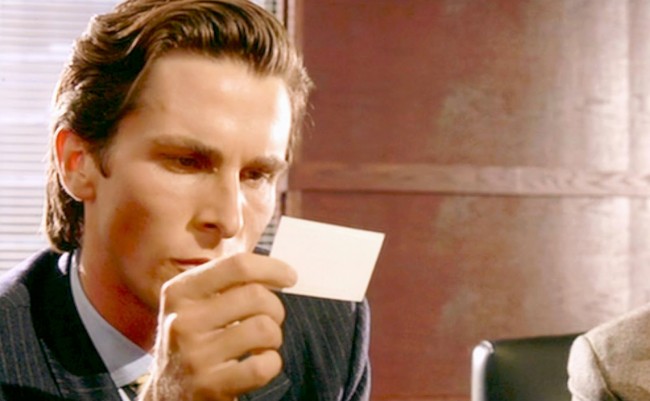
Should You Still Carry Your Business Card Around?
Business cards seem to be the talk of the town at the moment. In the last week alone I’ve read two articles published by prominent business websites talking up the importance of having a business card.
Fantastic. Couldn’t agree more – they are an essential networking tool.
According to both articles, we should also resign ourselves to the paper handshake, with paper business cards here to stay.
Wait, What?
In today’s digital age, are we really suggesting that a 2” by 3.5” piece of paper with our contact details printed on it is the best we can do?
Shall we store the cards in our 1980s Filofax?
Intrigued, I considered the arguments made in the articles. Words like ‘easy’, ‘seamless’, ‘personal’, ‘cheap’ and ‘portable’ were bandied about.
In Patrick Allan’s article on LifeHacker, titled Why Business Cards Still Matter (and How to Effectively Use Yours), he sums up the business case for the paper business cards as follows:
“There are lots of ways to get into people’s contact lists, but business cards are still a mainstay in the professional world. They’re cheap, simple, and efficient at delivering all the information you need to hand off.”
I agree with the premise (cheap, simple & efficient) – but I don’t buy-in to the conclusion. The fact of the matter is, until now, there has not been a viable digital alternative that has achieved this.
While there have been close to 100 attempts to disrupt paper business cards, not one has succeeded to a level which even remotely threatens their existence.
Even Google and LinkedIn have tried, but failed.
The problem with previous efforts is that they work quite nicely if both people sharing cards either have the same phone or the same app, which is clearly never going to work as part of a mainstream solution.
Or, in those apps that can communicate universally across devices, there is no more functionality than what a paper rectangle can offer – nothing updates, there is nothing clever about them.
So without any incentive to change behaviour and with more than 90 percent of these apps charging a subscription fee, indeed, why would you bother ditching paper business cards?
Attention, Patrick and fellow pro-paper pushers! Don’t lose hope!
Haystack is different because not only is it completely free, but it is truly universal – it will work with anyone, for anyone, on any internet connected device – phones, tablets, Macs, PCs, even your Smart TV.
It is also auto-updating. So unlike that pile of cards that you keep in your top drawer, the cards you scan with Haystack will never go out-of-date.
And as for ease of “getting on people’s contact lists”, I would argue that a Haystack card with the capability to be added to someone’s phone contacts at the tap of a button at the time of exchange would have higher probability of appearing there than a paper card that needs to navigate the manual labour pitfalls of handshake to hard drive.
For my money, I find it hard to imagine these scraps of paper we have become so accustomed to won’t be replaced by a digital counterpart in the very near future.
Our purses and wallets are swiftly being superseded by our phones. They may not be dead just yet, but they’re well on their way. Fingerprint scanners, contactless payments, wearable technology… the way we pay for things and identify ourselves is changing. It’s not unrealistic to think that soon we will leave home only with our phone/ smart device, and nothing more.
And what of the paper business card in this future? Will we carry a special holder just for them? Not likely. Grace our potential business contacts with a crumpled piece of paper dug out from our back pocket? How very professional.
No.
The fact of the matter is that we still, and will always need the ‘function’ of a business card. But we don’t need the ‘paper’ itself any more. Thanks to Haystack, the logistical benefit of the universal ease of exchange that paper business cards used to enjoy is dead. And without sounding too macabre, so too are paper business cards – it’s just a matter of time.